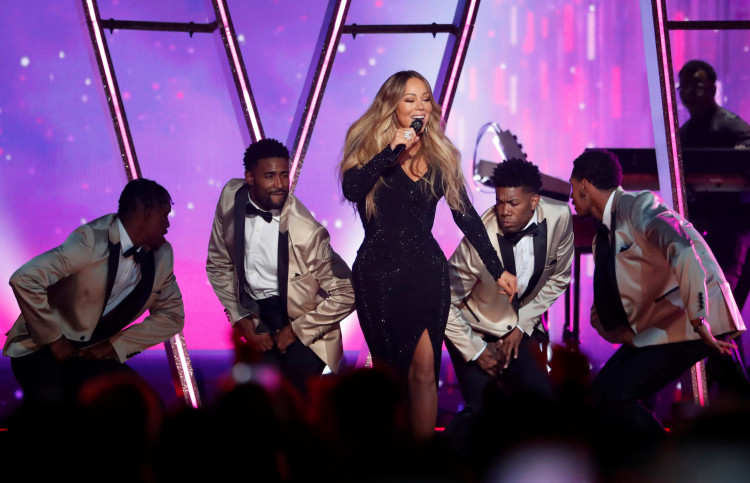Mariah Carey is vigorously defending herself against allegations that she plagiarized the melody and lyrics for her blockbuster hit "All I Want for Christmas Is You." The lawsuit, initiated by songwriters Andy Stone, also known as Vince Vance, and Troy Powers, accuses Carey of drawing undue inspiration from a track they penned in 1989, which shares the same title as Carey's 1994 release. The plaintiffs are seeking a staggering $20 million in damages, asserting significant similarities between the two compositions.
Mariah Carey, backed by her legal team, has categorically denied these claims, describing them as "not only false but frivolous." In a pointed response filed in court, Carey and her associated labels, Sony Music and Universal Music Group, have called for the dismissal of all claims, labeling the allegations as "outrageous and insulting." Carey's defense hinges on the assertion that the two songs are "completely different" in both melody and lyrics, emphasizing the uniqueness of her holiday anthem.
The defense further argues that the plaintiffs' song is not only dissimilar but also derivative of an earlier work, specifically Bobby Vinton's 1964 hit "My Heart Belongs Only to You." This counterclaim introduces a complex layer to the lawsuit, challenging the originality of Stone and Powers' composition.
In her legal filings, Carey has expressed her dismay over the lawsuit, particularly taking umbrage at the insinuation that she would co-opt another artist's work. "Andy Stone and Troy Powers after sitting silent for nearly thirty years-which itself is telling-now make the outrageous and insulting claim that Mariah Carey's 'All I Want for Christmas' copies Plaintiffs' obscure and obviously different song," Carey's legal team stated.
The controversy extends beyond the mere comparison of musical notes and lyrics; it delves into the essence of artistic creation and copyright law. Carey's lawyers have criticized the plaintiffs for basing their case on ubiquitous holiday themes such as snow, mistletoe, and the yearning for companionship during Christmas, arguing that these are "generalized and unprotectable themes" prevalent in countless holiday songs.
Adding another layer to the dispute, Carey's co-writer on the song, Walter Afanasieff, has publicly refuted Carey's narrative about the song's inception, suggesting that the "origin story" Carey has presented in recent years is a fabrication. Afanasieff's comments cast further doubt on the song's genesis, hinting at a more collaborative process rather than the solitary creative endeavor Carey has described.
This legal tussle comes at a time when "All I Want for Christmas Is You" continues to dominate holiday charts, achieving the status of a modern classic since its debut on Carey's 1994 "Merry Christmas" album. The song's enduring popularity, underscored by its perennial return to the Billboard Hot 100 chart each holiday season since 2019, has made it a lucrative asset in Carey's musical repertoire.
As the case progresses, the central question remains whether the similarities cited by Stone and Powers are sufficient to prove copyright infringement or if Carey's anthem will continue to be heralded as an original contribution to the holiday music canon. The outcome of this legal skirmish could have significant implications for copyright law, artistic ownership, and the legacy of one of the most beloved Christmas songs of the modern era.





